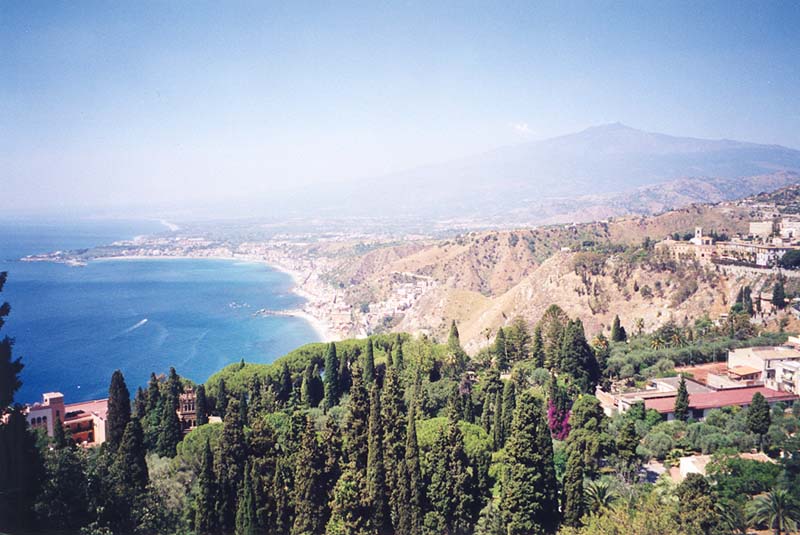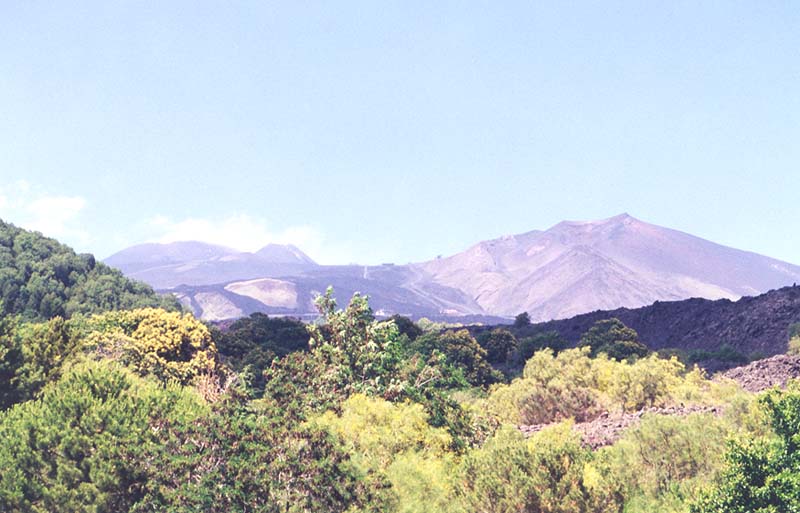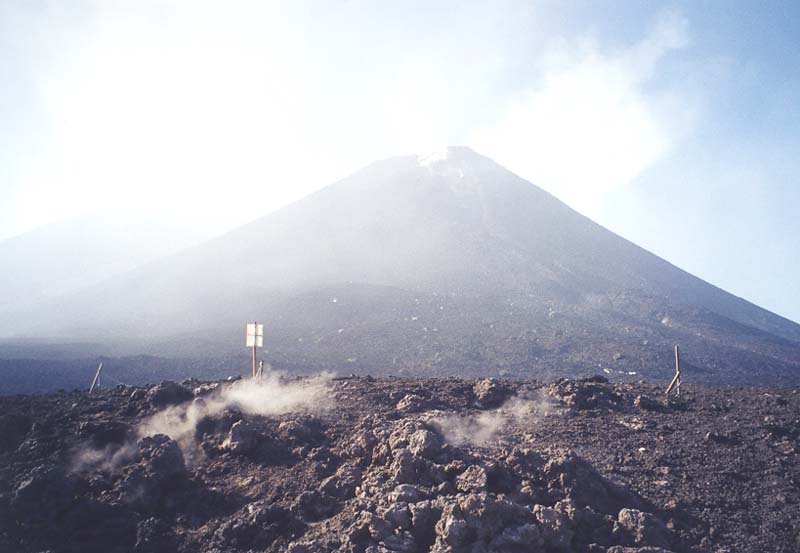The Ascent
Sir Richard Colt Hoare, A Classical Tour through Italy and Sicily (London: J. Mawman, 1819):
[533] Ćtna is naturally divided into three regions: the cultivated, the woody, and the region of ice, or lava. The first may be said to extend as far as Nicolosi; the second to the Grotto delle Capre; and the third from thence to the summit.
Construing landscape
historical |
ecological |
|
"to write about nature is to write about how the mind
sees nature, and sometimes about how the mind sees itself" (Sharon Cameron,
cited by Slovic 351)
|
|
|
Appropriation by human desire: disputing with nature in all her potency her right to separate man from man, and made straight in the desert an highway for progressive civilization! (Morgan 34-5) |
Unconditioned perception: But nature never disappoints. Neither the memory nor the imagination of authorship can go beyond the fact she dictates, or the image she presents. (Morgan 33) |
| All the employments of the people seem to require either exertion or caution; and the ideas of force or of danger which attend them, give to the scene an animation unknown to a solitary, though perfectly compatible with the wildest romantic situations. (Whately 114-7) | Certain properties, and certain dispositions, of the objects of nature, are adapted to excite particular ideas and sensations (Whately 153) |
| Sure 'tis all false what poets fondly tell Of rural innocence and village love; Else had thy simple annals, Nethercombe, Who bosom'd in the vale below dost look This morn so cheerful, been unstain'd with crimes, Which the pale rustic shudders to relate. (Crowe, Lewesdon Hill 382-8) |
this
prayer I make, Knowing that Nature never did betray The heart that loved her (Wordsworth, "Tintern" 122-4) |
| we came within the sound of these cataracts of the Reuss which announced our approach towards another operation of Satanic power, called the Devil's Bridge. We were more struck with the august drapery of this supernatural work, than with the work itself (Williams I, 160) | It is true, that the sketch I have penciled of that sublime scenery, however rude, will be found to be an original drawing, copied from nature, and not from books (Williams, Vol. I, i) |
| The first fell from the overhanging brow of a black precipice on an enormous rock, precisely resembling some colossal Egyptian deity. It struck the head of the visionary image, and gracefully dividing there, fell from it in folds of foam more like to cloud than water, imitating a veil of the most exquisite woof. (Shelley in Chamonix, 145) | all was as much our own, as if we had been the creators of such impressions in the minds of others as now occupied our own. Nature was the poet, whose harmony held our spirits more breathless than that of the divinest. (Shelley in Chamonix, 150) |
| But in all this -- the recollection of bitterness, and more especially of recent and more home desolation, which must accompany me through life, have preyed upon me here (Byron, Swiss Tour, 268) | All is concentered in a life intense, Where not a beam, nor air, nor leaf is lost, But hath a part of Being, and a sense Of that which is of all Creator and Defence. (Byron, Childe Harold III, 838-41) |
| that which is truley sublime has this peculiar to it, that it exalts the Soul and makes it conceive a greater Idea of it self; filling it with Joy, and with a certain noble Pride, as if it self had produc'd what it but barely Reads. (Dennis 1704, §179) | Nature has her proper interest; & he will know what it is, who believes & feels, that every Thing has a Life of it's own, & that we are all one Life. (Coleridge, Letter 1802) |
| the world shall be to us an open book, and every form significant of its hidden life and final cause. (Emerson, Nature 1836) | "Every scripture is to be interpreted by the same spirit which gave it forth," -- is the fundamental law of criticism. (Emerson, Nature 1836) |
Document created April 7th 2003


